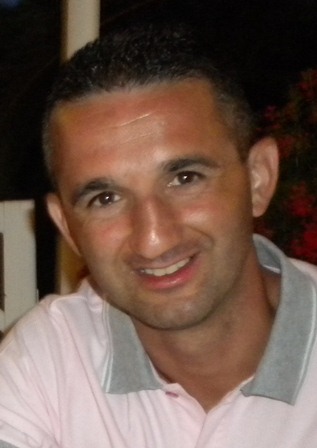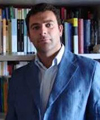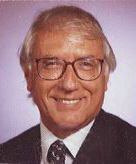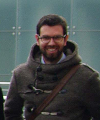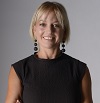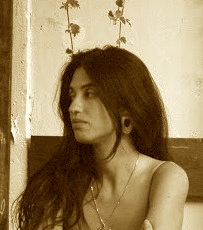Studying at the University of Verona
Here you can find information on the organisational aspects of the Programme, lecture timetables, learning activities and useful contact details for your time at the University, from enrolment to graduation.
Academic calendar
The academic calendar shows the deadlines and scheduled events that are relevant to students, teaching and technical-administrative staff of the University. Public holidays and University closures are also indicated. The academic year normally begins on 1 October each year and ends on 30 September of the following year.
Course calendar
The Academic Calendar sets out the degree programme lecture and exam timetables, as well as the relevant university closure dates..
| Period | From | To |
|---|---|---|
| Sem. IA (31.10.16 sosp.lezioni) | Oct 3, 2016 | Nov 12, 2016 |
| Sem. IB | Nov 14, 2016 | Jan 21, 2017 |
| Sem. IIA | Feb 27, 2017 | Apr 22, 2017 |
| Sem. IIB | Apr 24, 2017 | Jun 10, 2017 |
| Session | From | To |
|---|---|---|
| Sessione d'esami invernale | Jan 23, 2017 | Feb 25, 2017 |
| Sessione d'esame estiva | Jun 12, 2017 | Jul 29, 2017 |
| Sessione d'esami autunnale | Aug 21, 2017 | Sep 23, 2017 |
| Session | From | To |
|---|---|---|
| Sessione di Laurea Estiva | Jul 10, 2017 | Jul 15, 2017 |
| Sessione di Laurea Autunnale | Dec 18, 2017 | Dec 21, 2017 |
| Sessione di Laurea Invernale | Mar 23, 2018 | Mar 29, 2018 |
| Period | From | To |
|---|---|---|
| Festa di Ognissanti | Nov 1, 2016 | Nov 1, 2016 |
| Festa dell'Immacolata | Dec 8, 2016 | Dec 8, 2016 |
| Vacanze Natalizie | Dec 23, 2016 | Jan 7, 2017 |
| Vacanze Pasquali | Apr 14, 2017 | Apr 18, 2017 |
| Festa della Liberazione | Apr 25, 2017 | Apr 25, 2017 |
| Festa dei Lavoratori | May 1, 2017 | May 1, 2017 |
| Festa del Santo Patrono - San Zeno | May 21, 2017 | May 21, 2017 |
| Festa della Repubblica | Jun 2, 2017 | Jun 2, 2017 |
| Vacanze Estive | Aug 14, 2017 | Aug 19, 2017 |
Exam calendar
Exam dates and rounds are managed by the relevant Culture and Civilisation Teaching and Student Services Unit.
To view all the exam sessions available, please use the Exam dashboard on ESSE3.
If you forgot your login details or have problems logging in, please contact the relevant IT HelpDesk, or check the login details recovery web page.
Should you have any doubts or questions, please check the Enrollment FAQs
Academic staff
 maurizio.boscaini@univr.it
maurizio.boscaini@univr.it
 paolodalben@tin.it
paolodalben@tin.it
 mila.dallapreda@univr.it
mila.dallapreda@univr.it
 ettore.deangeli@univr.it
ettore.deangeli@univr.it
 marco.menato@univr.it
marco.menato@univr.it

Migliorati Lorenzo
 lorenzo.migliorati@univr.it
lorenzo.migliorati@univr.it
 045802 8135
045802 8135
 giuseppe.pernigo@univr.it
giuseppe.pernigo@univr.it
 alberto.scandola@univr.it
alberto.scandola@univr.it
Tani Stefano
 stefano.tani@univr.it
stefano.tani@univr.it
 +39 045802 8110
+39 045802 8110
 ivan.valbusa@univr.it
ivan.valbusa@univr.it
Study Plan
The Study Plan includes all modules, teaching and learning activities that each student will need to undertake during their time at the University.
Please select your Study Plan based on your enrollment year.
1° Year
| Modules | Credits | TAF | SSD |
|---|
2° Year activated in the A.Y. 2017/2018
| Modules | Credits | TAF | SSD |
|---|
One course to be chosen among the following3° Year activated in the A.Y. 2018/2019
| Modules | Credits | TAF | SSD |
|---|
One course to be chosen among the followingOne course to be chosen among the following| Modules | Credits | TAF | SSD |
|---|
| Modules | Credits | TAF | SSD |
|---|
One course to be chosen among the following| Modules | Credits | TAF | SSD |
|---|
One course to be chosen among the followingOne course to be chosen among the following| Modules | Credits | TAF | SSD |
|---|
Legend | Type of training activity (TTA)
TAF (Type of Educational Activity) All courses and activities are classified into different types of educational activities, indicated by a letter.
Type D and Type F activities
| years | Modules | TAF | Teacher |
|---|---|---|---|
| 1° 2° 3° | Laboratory of History of Theatre | F |
Simona Brunetti
(Coordinator)
|
| years | Modules | TAF | Teacher |
|---|---|---|---|
| 1° 2° 3° | Laboratory of History of Theatre | F |
Simona Brunetti
(Coordinator)
|
| years | Modules | TAF | Teacher | |
|---|---|---|---|---|
| 3° | Communication and human resources management | D |
Serena Cubico
(Coordinator)
|
|
| 3° | Data elaboration laboratory | F |
Maurizio Boscaini
(Coordinator)
|
|
| 1° 2° 3° | Professional interview | F |
Riccardo Sartori
(Coordinator)
|
|
| 1° 2° 3° | Creative workshop in business communication | F |
Riccardo Sartori
(Coordinator)
|
|
| 1° 2° 3° | Sociology of Communication | F |
Lorenzo Migliorati
(Coordinator)
|
|
| 1° 2° 3° | Sociology of Mass Communication (p) | F |
Lorenzo Migliorati
(Coordinator)
|
|
| years | Modules | TAF | Teacher | |
|---|---|---|---|---|
| 3° | Communication and human resources management | D |
Serena Cubico
(Coordinator)
|
|
| 1° 2° 3° | Creative workshop in business communication | F |
Riccardo Sartori
(Coordinator)
|
|
| 1° 2° 3° | Laboratory of radio languages | F |
Tiziana Cavallo
(Coordinator)
|
|
Sociology of Communication (2016/2017)
Teaching code
4S00986
Teacher
Coordinator
Credits
3
Language
Italian
Scientific Disciplinary Sector (SSD)
NN - -
Period
Sem. IIA dal Feb 27, 2017 al Apr 22, 2017.
Learning outcomes
The course is structured in a theoretical part and in a practical one. The first lessons are focused on the analysis and the discussion of the key concepts extracted from Paddy Scannell and Jean Baudrillard’s written works. Afterwards, there will be an expanded breakdown on visual consumption mediated by screens. In order to promote a creative misreading, here students will be motivated to experiment and to apply the concepts acquired during lessons on cultural products, in order to work in the field as communications analysts.
Program
The course aims to provide the theoretical basis to study social communication processes and deepen communication forms in daily life.
These objectives will be achieved through exposition of the main theoretical approaches of different research traditions, fitting the knowledge of communications sociology. Among the various models for the study of communications and media phenomenon, we will refer to communications as interaction, to encoding/decoding mechanisms, to media and audience studies, and to the relationship between communications and publicness inside information societies.
Nevertheless, during the lessons it will be also examined the hybridization between old and new media, since modern social scenarios are affected from the mutations introduced by technological innovations. The comparison between modernity and postmodernity allows us to question ourselves on the processes that Habermas defines with the concept of “new feudalization of everyday life”.
This project casts new light on the well-known sentence “The medium is the message” by McLuhan, and marks the passage from the making of societal life into a show to the screen logic, theorized by Baudrillard. The French thinker speculates that in today’s societies the message is already broken into countless signs with no referent. That is why Baudrillard defines contemporary culture as a “videogame one”: not only because it is indeed interconnected, but also because of a communications medley created from the euphoria within the messages that pass through our screens. If, as McLuhan states, “we become what we behold”, it is legitimate to question ourselves also on the way that communications are entrusted to soft and seductive technologies.
In order to deconstruct visual consumerism practices, spread particularly by hyper-textual absorption, Baudrillard’s thoughts will be the paradigm to perform a comparison between the different theoretical models explained during the course. It will be therefore applied a critic perspective in order to strengthen the media approach on cultural products.
Books for Examination:
Scannell P., Media e comunicazione, Il Mulino, Bologna 2009;
Baudrillard J., Il sogno della merce, Lupetti, Bologna 1995.
Examination Methods
Oral Examination
Career prospects
Module/Programme news
News for students
There you will find information, resources and services useful during your time at the University (Student’s exam record, your study plan on ESSE3, Distance Learning courses, university email account, office forms, administrative procedures, etc.). You can log into MyUnivr with your GIA login details: only in this way will you be able to receive notification of all the notices from your teachers and your secretariat via email and soon also via the Univr app.
Graduation
Documents
| Title | Info File |
|---|---|
|
|
pdf, it, 263 KB, 09/02/22 |
List of theses and work experience proposals
| theses proposals | Research area |
|---|---|
| Laureandi Scienze della Comunicazione: vademecum | Various topics |
| Stage | Research area |
|---|---|
| L'iter del libro in biblioteca | Various topics |
| Proposte stages - Centro di ricerca Skenè | Various topics |




